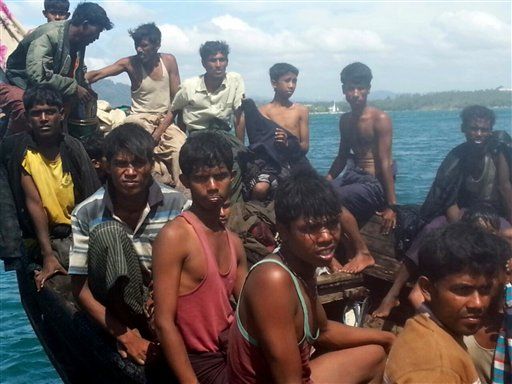The arraignment of two journalists based in southern Thailand has been postponed following pleas from rights advocates that charges be dropped.
Alan Morison, founder and editor of Phuketwan online news, and staff reporter Chutima Sidasathian, still face potential charges of defamation and violation of Thailand’s Computer Crimes Act for reporting on a Reuters feature that implicated Thai authorities in the smuggling of Rohingya Muslims from Burma.
Morison confirmed that the Australian Embassy informed them on Friday morning that the 10 March hearing has been rescheduled for some time in April.
Just before being alerted of the postponement, an international advocacy group, Human Rights Watch (HRW), publicly urged the Royal Thai government to abandon the case and instead investigate the Thai Navy, emphasising that journalists are being unfairly targeted while serious accusations against officials remain wholly overlooked.
“Prosecutors should be investigating the poor treatment of Rohingya boatpeople instead of targeting journalists,” read the public statement issued Friday morning.
Thai authorities have not offered any further information about why the hearing was rescheduled, but Phil Robertson, Deputy Director for HRW Asia Division, told DVB on Friday afternoon that a combination of factors could have influenced the decision.
Thai authorities, he said, probably did not expect the issue to garner so much attention; the case has even sparked demonstrations in Australia, Morison’s country of origin.
“We don’t know why, exactly, the date was postponed,” he said, “but buying time, in our view, is a good thing.”
Robertson explained that while the charges were being brought by the Royal Thai Navy, the decision to proceed to trial is “fortunately not up to them”. HRW has urged caretaker Prime Minister Yingluck Shinawatra to take up the issue directly and completely drop the case.
In its stead, HRW suggests, serious allegations against naval crimes should be independently investigated.
[related]
Morison and Sidasathian first presented themselves to the Phuket Police after a captain of the Royal Thai Navy accused them of defamation in December 2013, five months after Phuketwan published an article titled, “Thai Military profiting from trade in boatpeople, says special report”.
The article cited an investigative report claiming that Thai naval officers abetted a long-operational people-smuggling scheme for the sale and extortion of Rohingya Muslims, who in recent years have fled by the thousands to escape communal violence in Burma. The Rohingya have been described as among the world’s most persecuted peoples by the UN and others.
Last month the Burmese government was implicated in crimes against humanity for decades of targeted policies that deny Rohingya citizenship and limit their basic freedoms. While disputes between Burmese nationals and the stateless Muslim minority date back to the era of British colonialism, conflict has intensified since June 2012, when a succession of riots began that has to date left an estimated 200 dead and about 200,000 displaced, mostly Muslims.
Earlier this week Thailand faced serious criticisms over the country’s human trafficking record, which without a swift remedy could result in sanctions from the US, according to the Environmental Justice Foundation. Allegations of Thailand’s severe and endemic mistreatment of migrants is not limited to Burma’s Rohingya; migrants from various parts of Burma, Laos and Cambodia are routinely abused, the group said.
While it’s “good news” that Morison and Sidasathian are not immediately facing prison terms for their reporting, the issue of government accountability remains, said Robertson, reiterating HRW’s position that an independent investigation should be carried out by relevant experts, and results made public.
Robertson said that if the Thai government wishes to maintain a reputation as a democratic nation, they need to show that the Navy can be reigned in. To dismiss with a wave of the hand, he said, the findings of serious, “potentially Pulitzer-winning investigative journalism” would be “absolutely shameful”.



